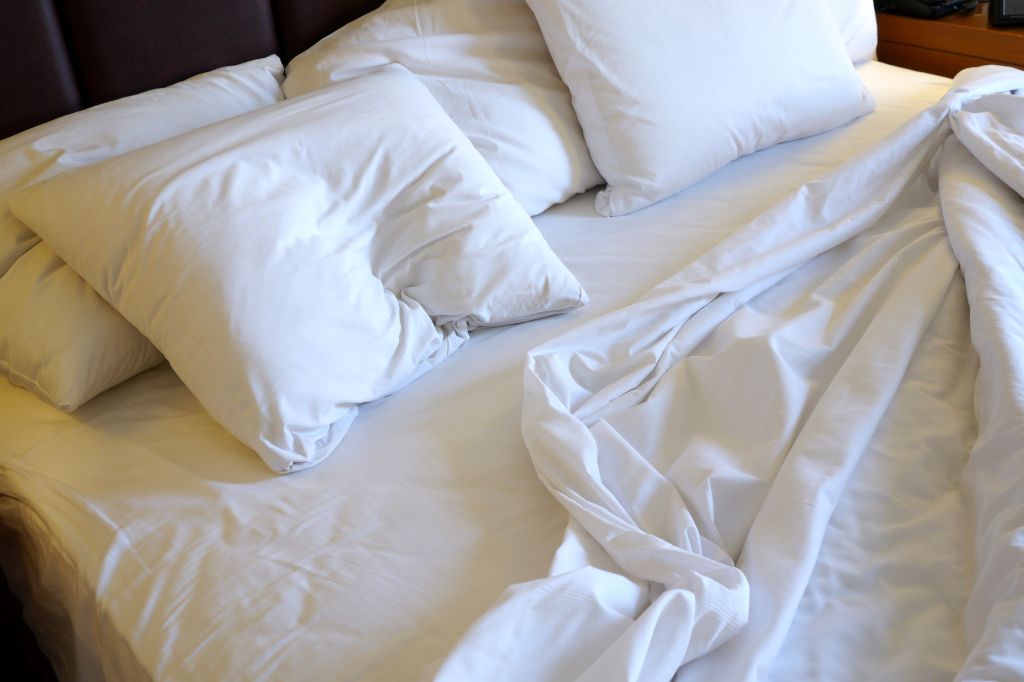How Often Should You Wash Your Sheets?
Clean sheets make getting into bed feel cozy and comfortable, and they can even help reduce symptoms like itchy skin, sneezing, and congestion. But have you ever wondered how often you should wash your sheets to keep them fresh and clean? Experts recommend washing or changing sheets once per week. Here’s everything you need to know about when to wash your sheets, why it matters, and how to keep your bedding cozy.

Washing Your Sheets Once a Week is a Good Idea
If you want the simplest advice, here it is: you should wash your sheets at least once a week. As per experts, washing your sheets weekly helps get rid of allergens, bacteria, and the sweat that builds up while you sleep. Think about all the things that end up in your bed—sweat, dead skin cells, dust mites, and even pet hair if your pets join you. Over time, these things can make your bed less clean and less comfortable.
Why Washing Your Sheets Often is Good for Your Health
You might wonder why washing your sheets often is so important. When we sleep, we shed dead skin, sweat, and oils from our bodies. These things might seem harmless, but they create the perfect environment for dust mites. Dust mites are tiny bugs that love warm, moist places and can cause allergies and asthma. As per experts, washing your sheets often helps get rid of dust mites and their droppings, which can help reduce allergy symptoms and irritation.
Sheets can also collect sweat, oils, and bacteria—especially in warmer weather or if you get night sweats. Mayo Clinic says that keeping your bed clean is important for your health and can help you sleep better.
You Might Need to Wash Your Sheets More Often in Certain Situations
Sometimes, you may need to wash your sheets more often than once a week. If you have allergies or asthma, you should wash them every 3-4 days to keep allergens under control. The same goes for people with skin issues like acne or eczema—clean sheets can help keep irritants away from your skin and may help prevent breakouts or rashes.
If you share your bed with pets, it’s also a good idea to wash your sheets every 3-4 days. Pets bring in extra dirt, bacteria, and dander, which means more frequent washing is needed. If anyone in your home is sick, washing the sheets more often can also help stop the spread of germs.
The Best Way to Wash Your Sheets to Keep Them Really Clean
Use hot water when washing your sheets. Hot water, ideally between 130°F and 140°F, kills dust mites and bacteria. Always check the labels on your sheets to make sure they can handle high heat. If hot water isn’t good for your sheets, you can use a sanitizing laundry product instead.
Use a mild detergent and try to avoid strong fragrances, especially if you or someone in your home has sensitive skin. Health experts also recommend drying your sheets on high heat if possible, as this helps kill any remaining dust mites or bacteria. Don’t forget to wash your pillowcases often, too, since they touch your face and hair every night!
How Often to Wash Blankets and Comforters
Sheets aren’t the only bedding that needs to be washed. Blankets, comforters, and duvet covers also collect dust, sweat, and allergens. Washing comforters and blankets every two to three months is usually enough, but if you use a duvet cover, try washing it about once a month. If someone in your home has allergies, it’s a good idea to wash these items more often.
Pillows need attention too. They can collect dust mites and bacteria over time. The Asthma and Allergy Foundation of America says to wash pillows every three to six months. Some pillows can be washed in the machine, while others need to be dry-cleaned—check the label to be sure.
Tips to Keep Your Bedding Fresh Between Washes
If washing your sheets every week sounds like a lot, there are ways to keep them fresher between washes. Showering before bed can help keep sweat and dirt out of your bedding. Also, consider changing your pillowcases more often since they pick up oils from your hair and skin. You can also air out your bedding by pulling back the covers during the day to let moisture escape.
Some people use a fabric spray to keep sheets smelling fresh between washes, but if you have allergies or asthma, it’s best to use unscented products. If you can, wash your sheets in the morning and let them dry in the sun—sunlight works as a natural disinfectant.
The Bottom Line
Overall, washing your sheets once a week is a good goal for most people. If you have allergies, pets, or other health issues, you might need to wash them more often.






